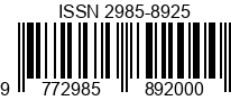Terciptanya Indonesia Emas 2045: Melalui Evolusi Budaya Politik Indonesia Yang Berkesadaran Hukum Oleh Pemuda dan Penggunaan Solusi Digital
DOI:
https://doi.org/10.54298/tarunalaw.v3i01.233Keywords:
Evolution, Politics, Law, DigitalAbstract
Indonesia is experiencing turbulent political waves, striving towards change, building pillars of evolution with legal awareness. If we look at Indonesia's current political dynamics, there is extensive use of practical politics without involving law and ethics in its implementation, for example, thuggery in politics, identity politics that damages national unity, and the practice of money politics. Indonesia is a constitutional state according to Article 1, Paragraph 3 of the 1945 Constitution. Therefore, all decisions taken should be based on law, including all political decisions. Although in reality, there are still many violations in the implementation of politics in Indonesia. The research used in this article is a qualitative research method. When discussing political theory, there are several theories considered important, namely: liberal, conservative, and socialist theories. Indonesia does not adhere to one dominant political system; in other words, Indonesia incorporates everything considered good and appropriate in its state implementation. Thus, the author provides ideas and solutions including: building a transparent and accountable digital political ecosystem, implementing artificial intelligence (AI) in political monitoring and analysis, developing an inclusive digital political education system, building an active and collaborative digital political community. These ideas and solutions focus on utilizing digital technology, artificial intelligence, and political education, especially early political education for youth, to become a cornerstone of quality political change for Indonesia in the future (changing legal culture through generational truncation efforts).
References
Airlangga, Shandi Patria. “Hakikat Penguasa dalam Negara Hukum Demokratis.” Jurnal Cepalo 3 (2019): 1–10. https://doi.org/10.25041/cepalo.v3no1.1783.
Anggara, Sahya. Sistem Politik Indonesia. Diedit oleh Beni Ahmad Saebani. Penerbit Pustaka Setia. Ed. 1. Bandung: CV Pustaka Setia, 2015.
Ardianto, Robi. “Registrasi 1.023 Temuan dan Laporan, Bawaslu Temukan 479 Dugaan Pelanggaran Pemilu 2024.” Badan Pengawas Pemilihan Umum, Februari 2024. https://www.bawaslu.go.id/id/berita/registrasi-1023-temuan-dan-laporan-bawaslu-temukan-479-dugaan-pelanggaran-pemilu-2024.
Ikmal, Moh., dan Mohammad Arifin. “Anarkisme Politik di Aras Lokal (Peran ‘Bandit’ Politik dalam Pilkades Di Kabupaten Sumenep).” Jurnal Ilmu Politik dan Pemerintahan 6 (2020): 123–52. https://doi.org/10.37058/jipp.v6i2.2219.
Kasih, Ekawahyu. “Pelaksanaan Prinsip-Prinsip Demokrasi Dalam Sistem Politik Di Indonesia Guna Mewujudkan Keadilan Sosial Bagi Seluruh Rakyat Indonesia.” Jurnal Kajian Lemhannas RI 34 (2018): 49–68. http://www.lemhannas.go.id/images/Publikasi_Humas/Jurnal/Jurnal Edisi 34 Juni 2018.pdf.
Nasrudin, Juhana. “Politik Identitas Dan Representasi Politik (Studi Kasus pada Pilkada DKI Periode 2018-2022).” Hanifiya: Jurnal Studi Agama-Agama 1 (2018): 34–47. https://doi.org/10.15575/hanifiya.v1i1.4260.
Nur Budiman, Bachtiar, Balilah Rizki Putriga, Bella Dewi Safitri, Julietta Imanuella Wicaksono, dan Vinona Julietta Imanuela. “Populisme: Konsekuensi dari Stagnasi Politik dan Demokrasi di Indonesia.” Jurnal PolGov 4 (2022): 211–43.
Pahlevi, Moch Edward Trias, dan Azka Abdi Amrurobbi. “Pendidikan Politik dalam Pencegahan Politik Uang Melalui Gerakan Masyarakat Desa.” Jurnal Antikorupsi Integritas 6, no. 1 (2020): 141–52.
Rahmatullah, Indra. “Meneguhkan Kembali Indonesia Sebagai Negara Hukum Pancasila.” Jurnal ’Adalah Buletin Hukum & Keadilan 4 (2020): 39–44. https://doi.org/10.15408/adalah.v4i2.16108.
Sagena, Unggul, Herman Lawelai, Herman Dema, Sundari, Hardianti, dan Irawati. Metode Penelitian Sub Rumpun Ilmu Politik (Teori & Referensi berbasis Studi Kasus). Diedit oleh Efitra dan Sepriano. Ed. 1. Jambi: PT. Sonpedia Publishing IIndonesIa, 2023.
Taqy Fauzan Giyandri, dan Jona Bungaran Basuki Sinaga. “Tantangan dan Dinamika Penerapan Teori Politik Kontemporer di Indonesia.” Jurnal Ilmu Hukum, Humaniora dan Politik 4 (2024): 371–78. https://doi.org/10.38035/jihhp.v4i3.1919.
Undang-Undang Dasar Negara Republik Indonesia Tahun 1945 (2002).
Yunus, Nur Rohim, Muhammad Sholeh, dan Ida Susilowati. “Rekontruksi Teori Partisipasi Politik Dalam Diskursus Pemikiran Politik Negara.” SALAM: Jurnal Sosial dan Budaya Syar-i 4 (2017): 289–302. https://doi.org/10.15408/sjsbs.v4i3.10289.
Downloads
Published
How to Cite
Issue
Section
License
Copyright (c) 2025 Farhan Azmy Rahmadsyah Farhan

This work is licensed under a Creative Commons Attribution-ShareAlike 4.0 International License.
Authors who publish with this journal agree to the following terms:
- Authors retain copyright and grant the journal right of first publication with the work simultaneously licensed under a Creative Commons Attribution-ShareAlike that allows others to share the work with an acknowledgement of the work's authorship and initial publication in this journal.
- Authors are able to enter into separate, additional contractual arrangements for the non-exclusive distribution of the journal's published version of the work (e.g., post it to an institutional repository or publish it in a book), with an acknowledgement of its initial publication in this journal.
- Authors are permitted and encouraged to post their work online (e.g., in institutional repositories or on their website) prior to and during the submission process, as it can lead to productive exchanges, as well as earlier and greater citation of published work (See The Effect of Open Access).














